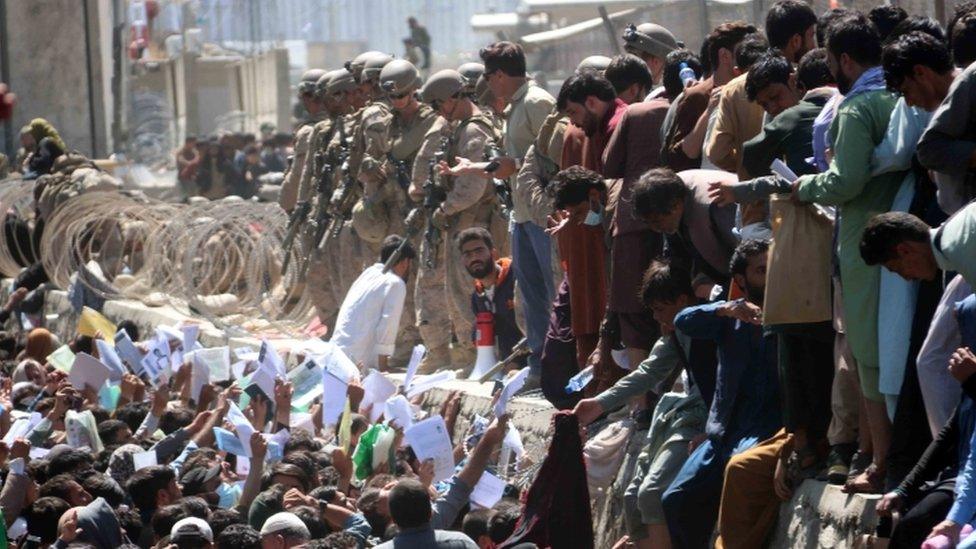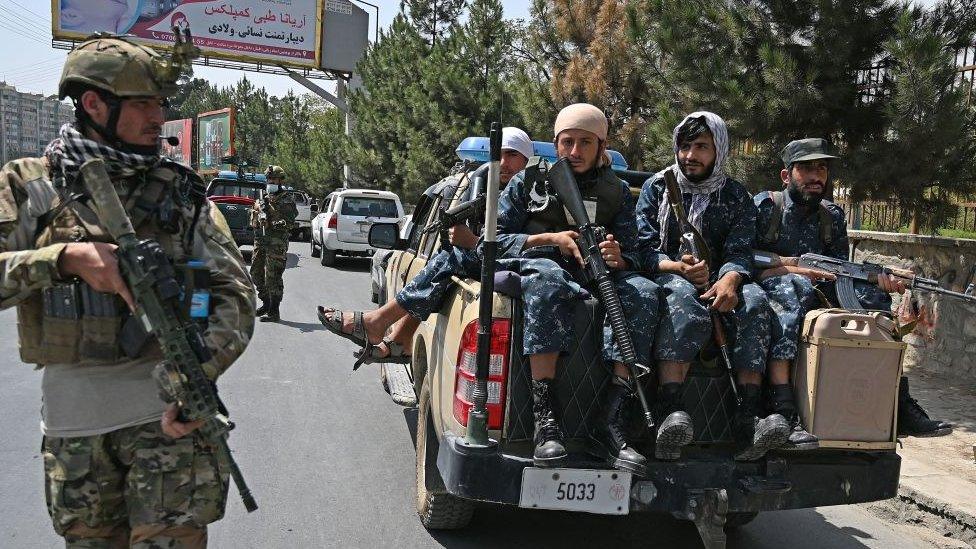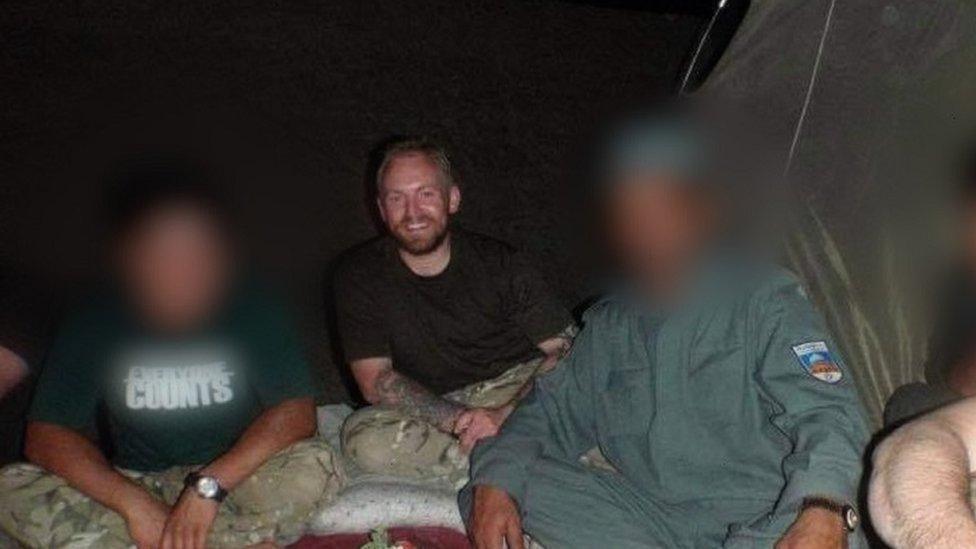Afghanistan: Interpreter's family granted refugee status in Ireland
- Published

The evacuation from Kabul airport has entered its final stage, ahead of the deadline on Tuesday
"I just thought that no-one would look after us and nobody would care about us."
An Afghan interpreter who worked with the Army in Helmand Province has said his emotions are "out of this world" after his family was granted refugee status in Ireland.
Bilal was 18 when he began working with British troops in 2012.
Now living in Australia, he was told he had one month to return to Afghanistan or the Taliban would kill his family.
A Northern Ireland naval officer, Tim McCullough, who served with Bilal, was instrumental in co-ordinating the evacuation and visa process.

"The emotions are out of this world, I broke down in tears when Tim told me that the visa was confirmed," Bilal told BBC Radio Ulster's Good Morning Ulster programme.
"I was very shocked, very emotional and, of course, very happy, it was almost an unbelievable situation.
"I have talked to [my family] and they are in a safe place and that makes me very, very happy."
Bilal said he was prepared to risk his life to save his family by returning to Afghanistan, however was unable to: "I couldn't go back because there was no flights, I couldn't even do that.
"The last thing I wanted was for my family to be in danger and I leave them behind and be here in Australia.
"I am very, very happy that they will be in Ireland very soon and start a new life."
Bilal's family were granted refugee status in the Republic of Ireland after a joint effort by the British and Irish governments to have them evacuated safely from Afghanistan.
He has not seen his mother for two and a half years.
"I'm just looking forward to be able to go and hug my mum and just say 'we've done it, you're here and you're safe now' - that will be great," he said.
'A brand new life'
Initial plans for the family to board a rescue flight from Kabul's Hamid Karzai International Airport were scrapped following a blast from a suicide bomber, which killed at least 95 people.
Mr McCullough, who is from Bangor in County Down, said he was "on cloud nine" after being able to tell Bilal his family "are coming to Ireland to be looked after".
"It's just brilliant the fact that his family woke up this morning to be able to think: 'We're going to have a brand new life, a safe life.'
"That's ultimately what we were after," he said, also speaking to Good Morning Ulster.

Tim McCullough (centre) worked with Bilal when he served in Helmand province in 2012
"The process has been complex… but I am really grateful for all the help that we've received.
"It's such a lovely thing to be able to give something back to somebody who gave everything to us.
"The collaboration between the British and Irish governments to give Bilal's family support has been immense, I'm just so glad that the two governments have talked and are offering him that support," he added.
A total of 65 people in Afghanistan are being assisted remotely by the Irish government, according to the country's Foreign Affairs Minister Simon Coveney.
There are also 150 cases of family reunification being prioritised by Department of Justice and 250 people granted asylum in a refugee settlement programme, RTÉ have reported.
Thirty-six Irish citizens and residents have already been evacuated from the country since the Taliban took hold.
More than 15,000 people have been evacuated by the UK since 14 August, but hundreds of people who are entitled to come to the country have been left behind.
It is feared that about 800 to 1,100 eligible Afghans, including those who worked for the UK government, and 100 to 150 British people were unable to get on evacuation flights.
- Published23 August 2021

- Published27 August 2021

- Published30 August 2021

- Published29 August 2021
